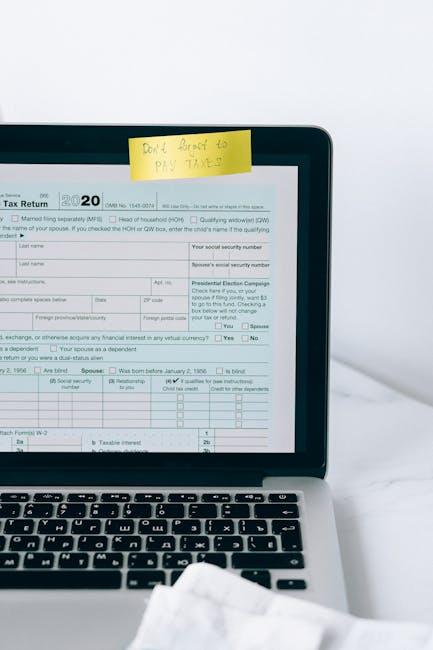In an age where a single device holds the key to our social lives, work, entertainment, and even moments of solitude, the smartphone has become something more than just a tool-it’s a near-constant companion. Yet, as our fingers scroll endlessly through feeds and notifications, a subtle but powerful force takes hold: addiction. What is it about these gleaming rectangles that captivates us so deeply? Beyond the surface of apps and alerts lies a complex web of neuroscience, psychology, and design, all converging to shape our habits in ways we rarely pause to consider. This article delves into the science behind smartphone addiction, unraveling the intricate mechanisms that make disengaging from our screens such a challenging feat.
Understanding the Neurological Triggers of Smartphone Use

Smartphone use taps directly into the brain’s reward system, particularly activating the release of dopamine, a neurotransmitter associated with pleasure and motivation. Each notification, message, or like can create a mini dopamine surge, reinforcing the behavior and making it increasingly rewarding to check the device. This neurological feedback loop can condition users to crave digital interaction, much like other behavioral addictions. Over time, frequent smartphone engagement can lead to altered brain activity, especially in regions responsible for impulse control, emotional regulation, and decision-making.
Several neurological factors contribute to this phenomenon:
- Variable Rewards: Unlike predictable outcomes, unexpected notifications activate the brain’s reward pathways more intensely, akin to gambling triggers.
- Social Validation: Positive social feedback from apps stimulates the release of oxytocin and dopamine, fostering a sense of belonging and attachment to the device.
- Stress Response: Smartphones can both soothe and induce stress, creating a complex interplay where users reach for their device to alleviate anxiety but become dependent in the process.
| Neurological Factor | Effect |
|---|---|
| Dopamine Release | Reinforces repetitive checking behavior |
| Impulse Control Disruption | Leads to difficulty resisting device use |
| Oxytocin Boost | Enhances feelings of social connection |
The Role of Dopamine in Habit Formation and Compulsive Checking

At the heart of our relentless urge to unlock our phones lies dopamine, a neurotransmitter often dubbed the “pleasure chemical.” Each notification, like, or new message triggers a release of dopamine, reinforcing the behavior and creating a feedback loop that fuels habit formation. This biochemical reward system doesn’t just encourage us to check our phones occasionally; it conditions our brains to seek the quick surge of gratification repeatedly. Over time, this manifests as compulsive checking, where the mere anticipation of digital interaction sparks dopamine release, making it increasingly difficult to resist the pull of our screens.
The process mimics other forms of habit reinforcement found in the brain, where certain behaviors become automatic responses to specific cues. Here’s how dopamine operates in this cycle:
- Trigger: A notification sound, vibration, or visual cue.
- Behavior: Unlocking the phone and engaging with new content.
- Reward: A dopamine-driven sense of pleasure and satisfaction.
- Reinforcement: Strengthening the neural pathway, making the behavior more likely to repeat.
| Stage | Role of Dopamine | Outcome |
|---|---|---|
| Initial Use | High dopamine surge | Strong positive reinforcement |
| Repeated Checking | Dopamine release anticipates reward | Habit forms |
| Compulsive Checking | Craving dopamine, even without new content | Behavior becomes automatic |
Impact of Screen Time on Mental Health and Cognitive Function

Excessive exposure to screens has become an omnipresent element in modern life, shaping our emotions and thought processes in subtle yet profound ways. Studies reveal that prolonged screen time alters brain chemistry, increasing dopamine activity which reinforces repetitive checking and scrolling behaviors. This neurological feedback loop can diminish attention spans and impair memory consolidation, especially when screen use intrudes upon quality sleep patterns. Additionally, social media platforms often amplify feelings of loneliness and anxiety by fostering unrealistic social comparisons, creating a paradox where digital connectivity ironically leads to emotional isolation.
Beyond emotional well-being, cognitive functions such as problem-solving, critical thinking, and creativity are vulnerable to the fragmented focus induced by constant notifications and multitasking on devices. Consider these impacts:
- Reduced working memory capacity due to frequent task-switching
- Lowered impulse control stemming from instant gratification cycles
- Diminished deep processing abilities as attention becomes scattered
| Effect | Brain Area | Implication |
|---|---|---|
| Increased anxiety | Prefrontal cortex | Heightened stress response |
| Impaired memory | Hippocampus | Difficulty encoding information |
| Reduced attention | Parietal lobe | Shortened focus duration |
Practical Strategies to Reclaim Control and Foster Healthy Digital Habits

To regain mastery over our smartphone usage, it’s essential to establish clear boundaries and foster mindful engagement. Start by designating technology-free zones such as the dining table or bedroom, where the absence of screens invites more present interactions and promotes better sleep hygiene. Implementing scheduled “digital detox” periods each day can also create valuable breathing space, helping to reset the brain’s reward system that craves constant notifications and likes. Moreover, consciously opting for purposeful use rather than mindless scrolling can transform the smartphone from a distraction into a tool for genuine connection and productivity.
Adopting small, consistent changes can compound into significant improvements in digital well-being. Below is a simple plan that illustrates daily strategies alongside their benefits:
| Strategy | Purpose | Expected Benefit |
|---|---|---|
| Set app usage limits | Control time spent on distracting apps | Reduced impulsive checking |
| Turn off non-essential notifications | Minimize interruptions | Improved focus and calm |
| Use grayscale mode | Make the screen less appealing | Lowered screen time |
| Schedule tech-free periods | Encourage offline activities | Enhanced mental clarity |
The Conclusion
As we peel back the layers of our smartphone habits, the science reveals a complex dance of brain chemistry, design psychology, and behavioral patterns that bind us to these glowing rectangles. Understanding the mechanisms behind smartphone addiction is the first step toward reclaiming our attention and balance in a digitally saturated world. While our devices offer unparalleled convenience and connection, being mindful of their hold allows us to harness their benefits without surrendering to their pull. In the end, awareness is the key to unlocking freedom in an age of endless notifications.











